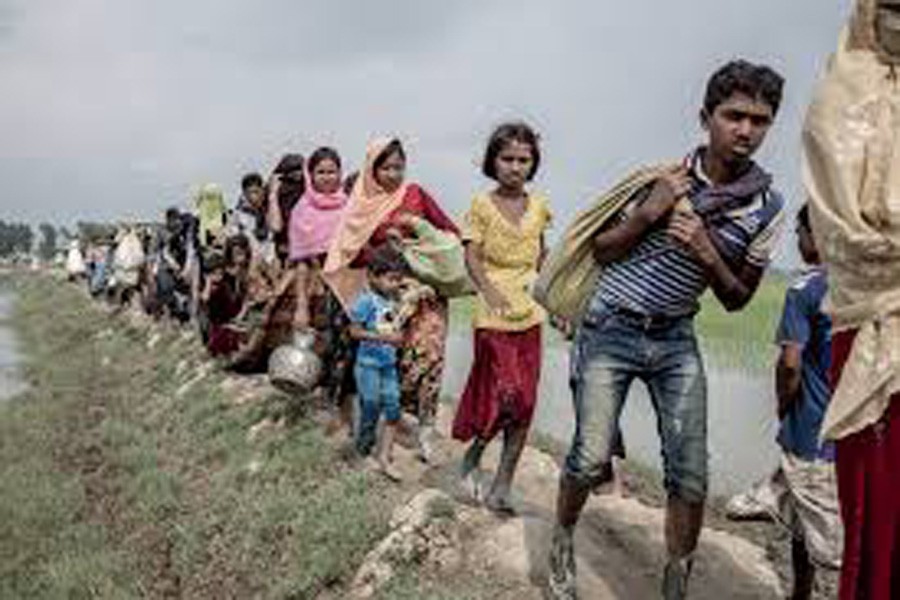Dhaka has urged the UN Human Rights Council to play its due role for resolving the Rohingya crisis.
Minister for Foreign Affairs Shahriar Alam said despite having had no part in the crisis at all, Bangladesh was facing enormous socio-economic, demographic and environmental pressure with the burden of nearly one million displaced persons from Myanmar,"
Alam, who was leading a Bangladesh delegation to the 27th Special Session of the UN Human Rights Council, said this while speaking at the session in Geneva, according to a message received here today.
"Bangladesh, out of good neighbourliness, tried to resolve this matter bilaterally for decades," he said mentioning that its efforts were not reciprocated specially since 2005.
In this connection, he said only sustained international pressure on Myanmar could ensure fulfillment of her commitments.
Speaking on the session, UN Secretary General's Special Representative on sexual violence in conflict, Pramila Patten noted that history would remember the hospitality and humanity that Bangladesh had shown to the Rohingya people.
Besides, many delegations including Japan appreciated Bangladesh's efforts under the leadership of Prime Minister Sheikh Hasina in providing safety and assistance to those who have fled violence in Rakhine state.
They also encouraged the international community to continue to assist Bangladesh and take appropriate measures to ensure a sustained solution of the crisis.
The Special Session jointly called by the Geneva-based Permanent Representatives of Bangladesh and Saudi Arabia, received an unprecedented level of cross-regional political support including from all the states of the OIC that are HRC members, all the EU States, the USA and Japan among
others, reports BSS.
A draft resolution submitted by Bangladesh on behalf of a core group comprising Bangladesh, Saudi Arabia, Turkey, Maldives, Algeria, Senegal, Sudan and Nigeria was cosponsored by over 80 countries including the OIC Group.
The resolution was adopted by 33 votes in favour, three against and nine
abstentions.
The 47-member Council, through the adopted resolution, requested the Myanmar government to fully cooperate with the Fact-Finding Mission that the Council established in its March Session this year.
Addressing the Council, UN High Commissioner for Human Rights, Zeid Ra'ad Al Hussein, underscored the possibility of the presence of the elements of "Genocide"; and reiterated that the systematic attacks on the Rohingya community warranted the attention of the International Criminal Court.
Also, by this outcome resolution of the Special Session, the Human Rights Council asserted that the systematic and targeted violations of human rights by the Myanmar security forces assisted by non-state actors in the Rakhine State is very likely to amount to the commission of crimes against humanity.


